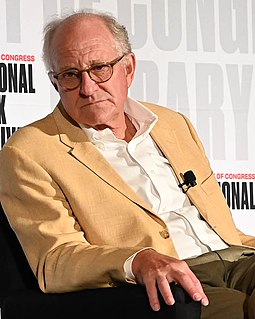A Quote by Arthur Koestler
The continuous disasters of man's history are mainly due to his excessive capacity and urge to become identified with a tribe, nation, church or cause, and to espouse its credo uncritically and enthusiastically, even if its tenets are contrary to reason, devoid of self-interest and detrimental to the claims of self-preservation.We are thus driven to the unfashionable conclusion that the trouble with our species is not an excess of aggression, but an excess capacity for fanatical devotion.
Quote Topics
Aggression
Become
Capacity
Cause
Church
Claims
Conclusion
Continuous
Contrary
Credo
Detrimental
Devoid
Devotion
Disasters
Driven
Due
Even
Excess
Excessive
His
His Ex
History
Identified
Interest
Mainly
Man
Nation
Our
Preservation
Reason
Self
Self-Interest
Self-Preservation
Species
Thus
Tribe
Trouble
Urge
Related Quotes
You bet I write disaster fiction. We have compiled a disastrous record on this planet, a record of stupidity and absurdity and self-abuse and self-aggrandizement and self-deception and pompousness and self-righteousness and cruelty and indifference beyond what any other species has demonstrated the capacity for, which is the capacity for all the above.
Our capacity to think, except in the service of what we are dangerously deluded in supposing is our self-interest and in conformity with common sense, is pitifully limited: our capacity even to see, hear, touch, taste and smell is so shrouded in veils of mystification that an intensive discipline of unlearning is necessary for anyone before one can begin to experience the world afresh, with innocence, truth and love.
I'm beginning to feel that the real endangered species on planet earth are not the whales and the elephants but those of us who can laugh at the world and ourselves. ... I fear the dry turn of the American mind, this focus on the literal, as much as I fear our capacity for self-destruction. We've become hagridden by facts, obsessed with product instead of process. Where's the energetic wit, the looney outlook, the frivolity, the lightness of comforting laughter? It has become fashionable to know and unfashionable to feel, and you can't really laugh if you can't feel.
Two ideas are psychologically deep-rooted in man: self-protection and self-preservation. For self-protection man has created God, on whom he depends for his own protection, safety and security, just as a child depends on its parent. For self-preservation man has conceived the idea of an immortal Soul or Atman, which will live eternally. In his ignorance, weakness, fear, and desire, man needs these two things to console himself. Hence he clings to them deeply and fanatically.
The tribe is whatever we believe it is. If we say the tribe is all the Little Ones in the forest, and all the trees, then that is what the tribe is. Even though some of the oldest trees here came from warriors of two different tribes, fallen in battle. We become one tribe because we say we're one tribe." Ender marveled at his mind, this small raman [member of another sentient species]. How few humans were able to grasp this idea, or let it extend beyond the narrow confines of their tribe, their family, their nation.
Obviously, you can't operate a system at 100 percent capacity. You need room for growth. And because there are peak times, you need surge capacity. But it is easier to reduce and manage excess capacity in larger units than smaller, especially when you have a diversity of users who have different peak periods and different growth rates. That's why the utility model is intriguing.





































